Posted December 2, 2019 by Ashley Washburn
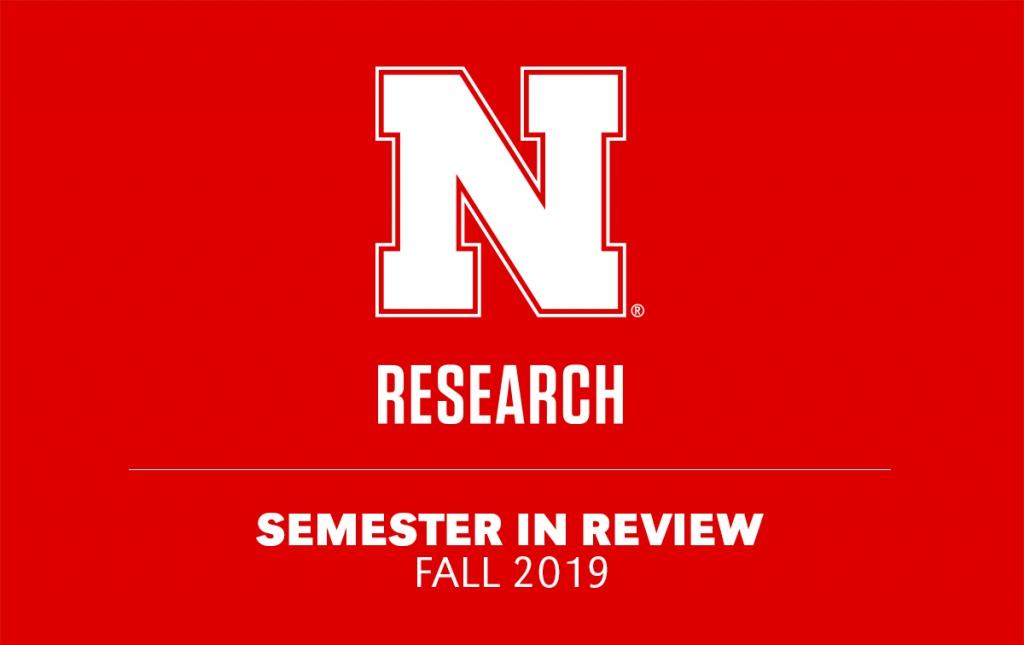
As the fall 2019 semester wraps up, take a look back at the University of Nebraska–Lincoln’s research accomplishments from June through November. Highlights include major awards, faculty awards and accomplishments, and noteworthy research milestones.
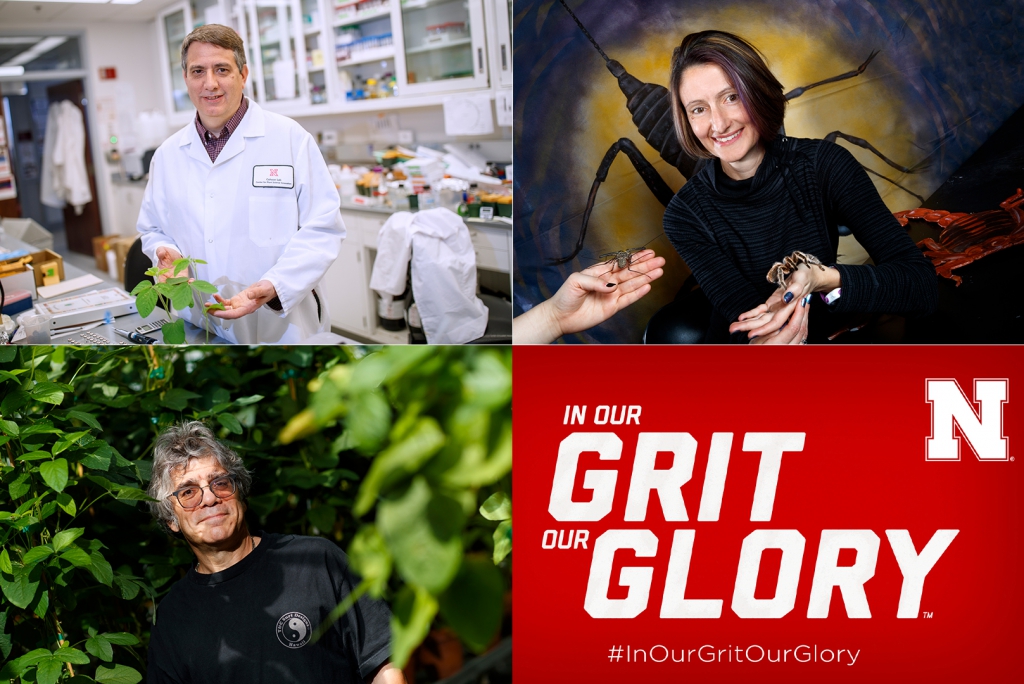
Three Huskers named AAAS fellows
Three Nebraska researchers were named fellows of the American Association for the Advancement of Science, the world’s largest general scientific society. Fellows are selected by their peers for scientifically or socially distinguished achievements that advance science or its application. The 2019 fellows, 443 in total, will be recognized Feb. 15, 2020, at the AAAS meeting in Seattle, Washington.
Ed Cahoon, George Holmes Professor of Biotechnology, was selected for contributions to the field of plant lipid biochemistry, particularly for elucidating variant lipid metabolic pathways and fatty acid desaturase structure-function. Cahoon has served as director of the Center for Plant Science Innovation since 2010 and led establishment of the university’s National Science Foundation-funded Center for Root and Rhizobiome Innovation in 2016.
Tom Elmo Clemente, Eugene W. Price Distinguished Professor of Biotechnology, was honored for his work in plant molecular biology and genetics, particularly his role in developing tools for functional genomics and genetic engineering targeting value-added and disease-control traits. Clemente, director of the Plant Transformation Core Research Facility, has played a key role in establishing an agriculture biotechnology pipeline at the university.
Eileen Hebets, professor of biological sciences, was selected for contributions to behavioral and evolutionary biology, particularly animal communication, sensory biology and mating strategies, as well as science communication outreach and informal science learning. Hebets, a pioneer in informal science education, used NSF funding to develop a community engagement event called Eight-Legged Encounters, which features nearly 40 hands-on activities and has reached nearly 40,000 people.
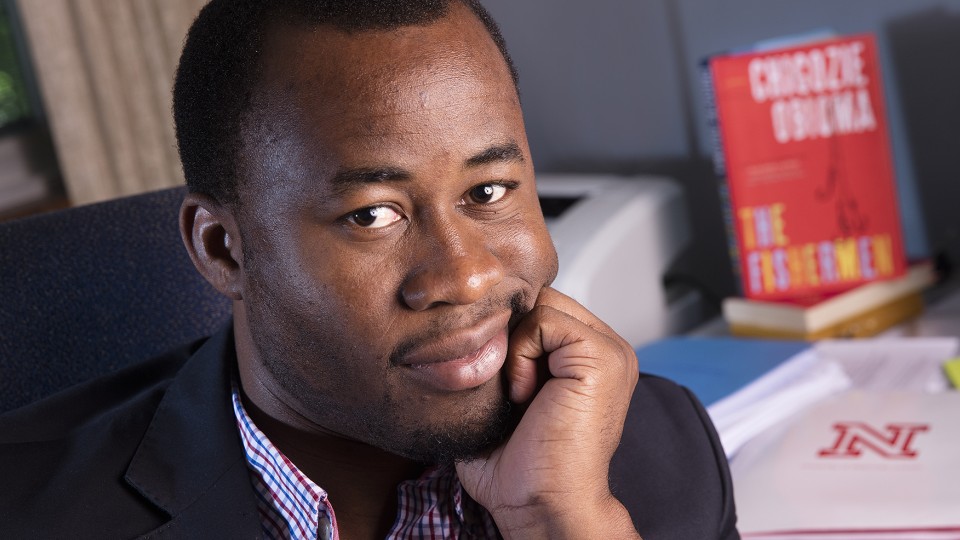
Obioma’s new novel makes Booker Prize shortlist — again
Chigozie Obioma’s second novel, “An Orchestra of Minorities,” was shortlisted for the Booker Prize, one of literature’s top international awards. The novel is set in Nigeria, where Obioma grew up, and tells the story a young poultry farmer who prevents a woman from jumping off a highway bridge.
His debut novel, “The Fishermen,” made the shortlist in 2015, making Obioma one of only a handful of authors to have appeared on the Booker Prize shortlist more than once.

Faculty earn early-career honors
Several Nebraska early career researchers received nationally prominent awards this semester.
Joe Louis, associate professor of entomology, received an Early Career Innovation Award from the Entomological Society of America for his work to understand how genetics influence how plants respond to insects. His research has been featured in more than 35 publications, and he also is involved in multiple education and outreach projects focused on student populations underrepresented in science.
Shudipto Dishari, assistant professor of chemical and biomolecular engineering, received an Early Career Award from the Department of Energy’s Office of Science. Her research aims to design new polymer materials that will improve energy efficiency and storage, perhaps in devices such as fuel cells and redox-flow batteries.
Yanbin Yin, associate professor of food science and technology, is developing computational tools to quickly identify CAZymes, a class of enzymes found in all living organisms, with support from a National Science Foundation Early Career Development Program award. Yin received his CAREER award at Northern Illinois University and is now continuing this work through the Nebraska Food for Health Center at the University of Nebraska.
Angela Pannier, professor of biological systems engineering, received a Presidential Early Career Award for Scientists and Engineers in July, the highest U.S. government honor for early career researchers who show exceptional leadership promise. Pannier has developed more than 10 projects related to biomaterials and gene delivery systems. Marilyne Stains also earned this honor as a Nebraska associate professor of chemistry.
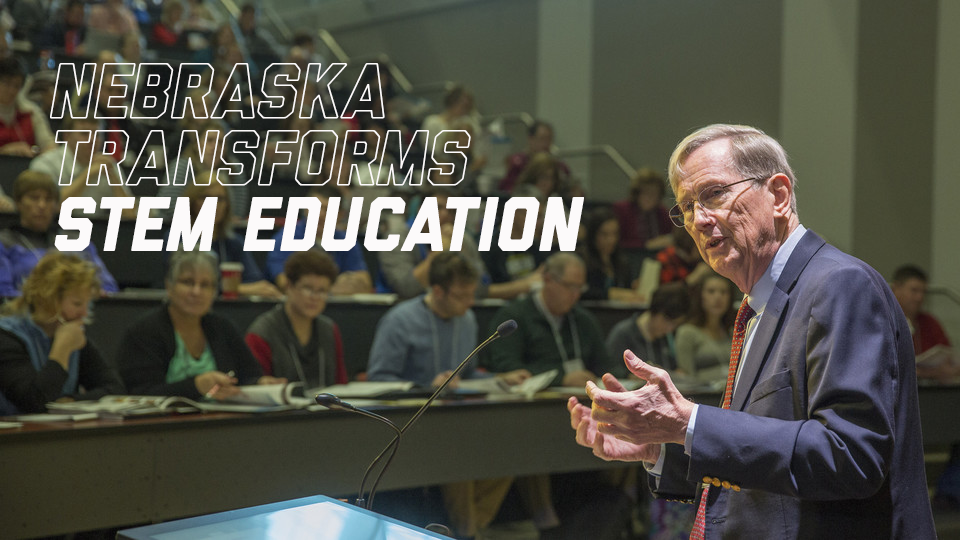
Building Nebraska’s STEM workforce is focus of new grant
UNL is partnering with Southeast Community College and Western Nebraska Community College to strengthen the state’s STEM workforce through a new five-year, $3.56 million grant.
This funding from the National Science Foundation’s S-STEM initiative provides scholarships and academic support for 120 low-income students, specifically targeting underrepresented minorities, women, rural and first-generation students.
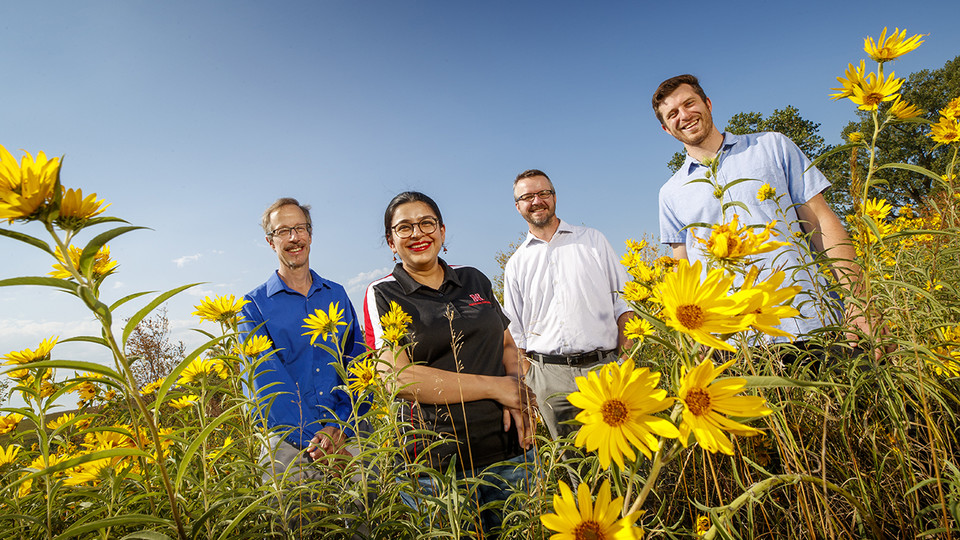
Nebraska leads study to track changes in ecosystems
A four-year, nearly $4 million grant from the National Science Foundation’s Established Program to Stimulate Competitive Research program supports development and implementation of screening tools to enable earlier, more precise detection of subtle changes in ecosystems that could foreshadow destabilizing transitions. Such transitions – say, from grassland to cedar woodland or from fertile farmland to desert – can lead to dire consequences, including reduced food and water security and heightened wildfire risks. The team, led by ecologist Dirac Twidwell, includes scientists from Nebraska and the University of Montana.

Nebraska paves way in using DNA nanotechnology to improve graphene
On Oct. 24, the university announced a three-year, $4.5 million grant from the U.S. Department of Defense’s Office of Naval Research to fund interdisciplinary, multi-institutional research to combine graphene nanoribbon and DNA nanotechnology. Researchers aim to use artificial DNA strands as a construction material to assemble graphene nanoribbons, the thinnest and strongest form of carbon, into more useful graphene-based electronics such as transparent conductive films, electronic and opto-electronic devices, actuators, sensors, composites and more. Alexander Sinitskii, associate professor of chemistry, leads the team, which includes four other universities.
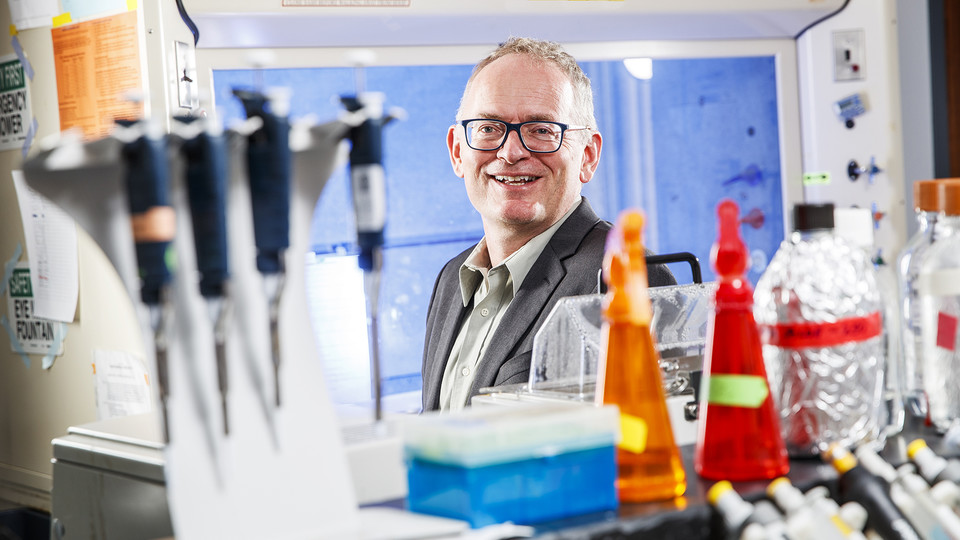
Center enters second phase of studying obesity
The Nebraska Center for the Prevention of Obesity Diseases through Dietary Molecules, founded in 2014, received its second five-year, $11 million grant from the National Institutes of Health’s Centers of Biomedical Research Excellence program. The funds will continue to support the center’s work for the next five years as researchers study how nutrients initiate biochemical chain reactions that store fat and cause inflammation.
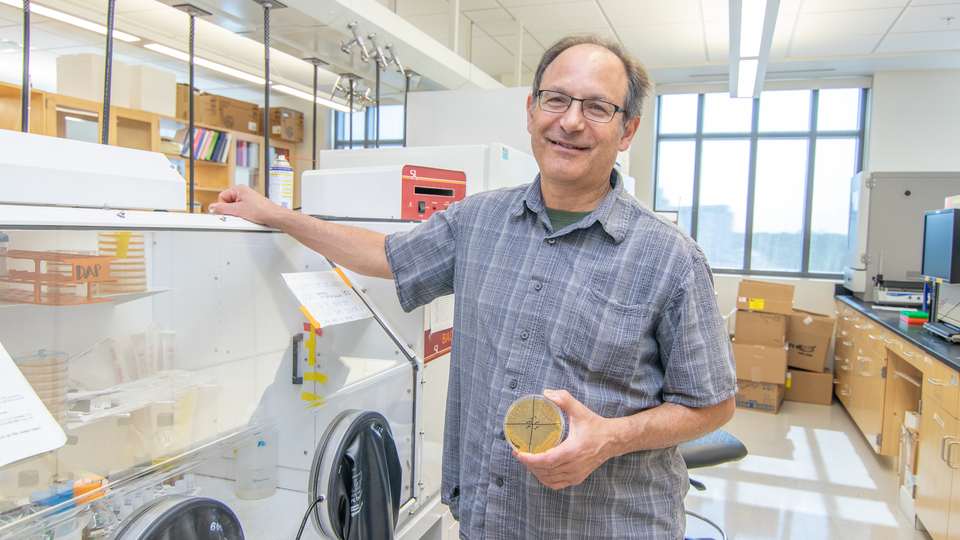
Faculty startup aims to maximize gut bacteria for human health
Pairing the ideal combination of beneficial gut bacteria and the fuel that feeds them is the aim of Synbiotic Health, the university’s newest faculty startup. The company’s founding members are Bob Hutkins and Andy Benson, professors of food science and technology; Tom Burkey, professor of animal science; Jens Walter, University of Alberta; and chief executive officer Tim Brummels. Synbiotics are mixtures of beneficial bacteria and fiber-like fuel that work more effectively when paired together. The team is partnering with NUtech Ventures, the university’s technology commercialization arm, to license the strains, with the goal of creating synbiotic combinations that can be used as ingredients in food and beverages. The company’s first human clinical trials will begin next year.
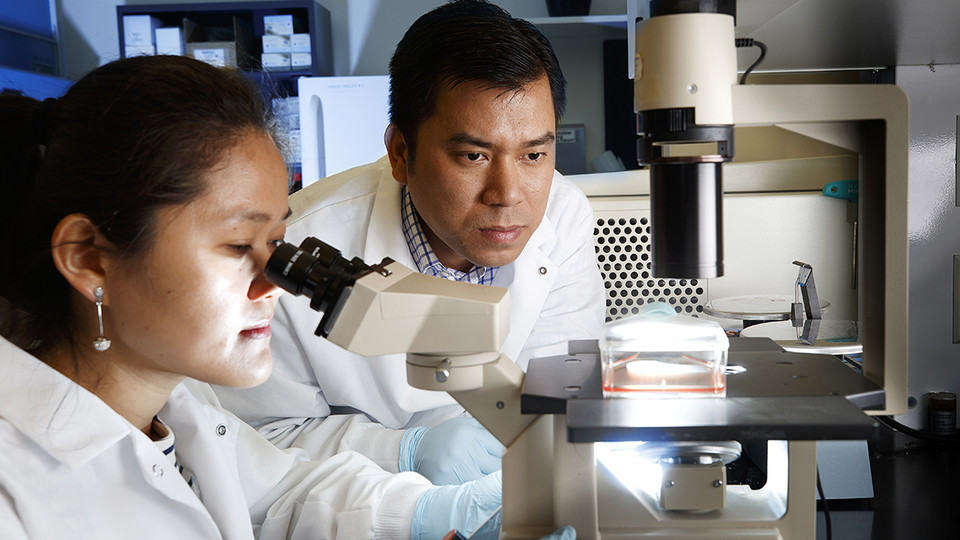
NU in top 100 of U.S. patents
The University of Nebraska system was named among the top 100 academic institutions worldwide in earning U.S. patents, the second straight year it has received the distinction.
A report from the National Academy of Inventors and Intellectual Property Owners Association lists the NU system as tied at No. 79 for earning U.S. patents in 2018. Intellectual property is licensed and commercialized through NUtech Ventures, which serves the University of Nebraska–Lincoln, and UNeMed, which serves the University of Nebraska Medical Center and the University of Nebraska at Omaha.
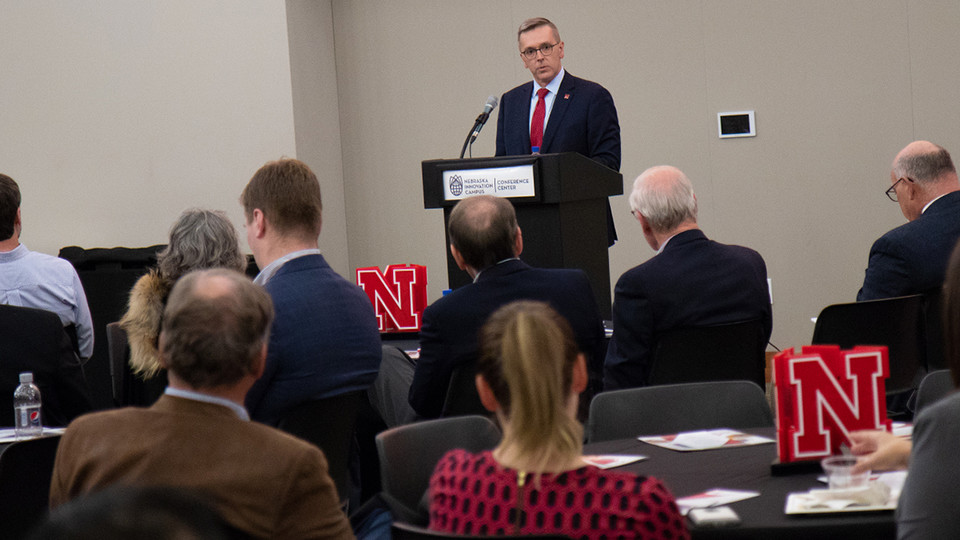
Researchers earn NUtech Ventures innovator awards
NUtech Ventures, the university’s technology commercialization affiliate, honored Nebraska faculty at its annual Innovators Celebration on Nov. 4. The awards and their recipients are:
- Prem S. Paul Innovator of the Year: Shane Farritor, chief technical officer of Virtual Incision and Lederer Professor of Mechanical and Materials Engineering. Farritor is a co-founder of Virtual Incision, a university spinoff company developing miniaturized robots for general surgery abdominal procedures. The company, with headquarters at Nebraska Innovation Campus, has more than 140 issued patents and patent applications and has raised millions of dollars to advance its technology.
- Breakthrough Innovation of the Year: Gary Pickard, professor of veterinary medicine and biomedical sciences, and Patricia Sollars, associate professor of veterinary medicine and biomedical sciences. The team developed a herpes vaccine that has been successfully tested on mice. The research has further implications for animal protection and cancer treatments in humans.
- Emerging Innovator of the Year: Eric Weaver, associate professor of biological sciences. He is developing a universal flu vaccine using an epigraph model, which has 16 components rather than the typical four. The goal of this research is to effectively protect against all known flu strains, resulting in vaccines that could be used for animals and humans.
- Startup Company of the Year: Drone Amplified, headed by co-founder Carrick Detweiler, Susan J. Rosowski Associate Professor of Computer Science and Engineering. The company’s drone-mounted technology uses pingpong-sized spheres that ignite prescribed burns and backfires, starving incoming wildfires of potential fuel. It also provides a safer alternative for crews who would otherwise fight wildfires by aircraft or vehicle.
- Commercialization Partner of the Year: Bayer Crop Science, which licensed university plant genetics technology and incorporated it into herbicide-resistant soybeans and cotton. The gene technology helps farmers improve yields by controlling weeds and was developed by Nebraska’s Donald Weeks, emeritus Maxcy Professor of Agriculture and Natural Resources, and Tom Clemente, Eugene W. Price Distinguished Professor of Biotechnology.

Kiewit partnership spurs further College of Engineering expansion
The university and Peter Kiewit Sons Inc. announced plans Sept. 16 to significantly expand Nebraska’s College of Engineering facilities. Kiewit Hall, an estimated $85 million engineering facility, is backed with a $20 million investment from Kiewit. The academic hub will house the Lincoln-based construction management programs. The Kiewit partnership is expected to boost Nebraska’s stature in engineering, a leading area for many Big Ten institutions. The project, considered Phase 2 of the college’s expansion, received Board of Regents approval in October.
Work began in September on Phase 1 of the $75 million renovation of Walter Scott Engineering Center, Nebraska Hall and the Link, a 34-year-old structure connecting Scott Engineering Center and Nebraska Hall. The project is expected to be completed in 2022.
Together, these construction projects will help meet a burgeoning need for workers in engineering and computer science. Nebraska alone is projected to need 15,000 new employees in these disciplines by 2026.
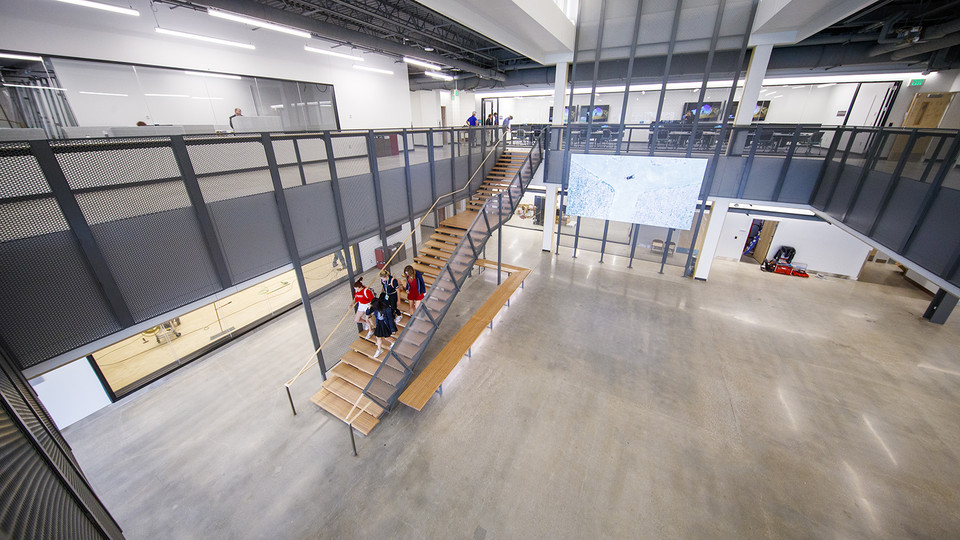
Carson Center officially launches emerging media arts program
The Johnny Carson Center for Emerging Media Arts opened its doors in fall 2019 to give Huskers the skills to leverage new and emerging technologies for careers in entertainment, film and beyond. Thirty-three students entered the program during its inaugural year.
The center was launched by a $20 million gift from the foundation of iconic talk show host and Nebraska alumnus Johnny Carson. It was formally dedicated Nov. 15-17. It is the first academic center in the Big Ten to earn the Hewlett Packard/Educause Campus of the Future designation.
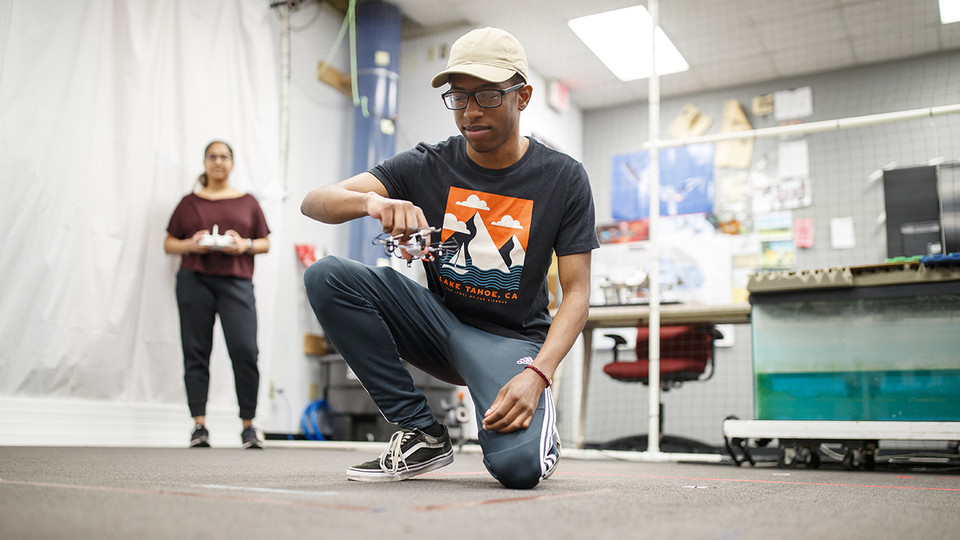
FYRE opens research experiences to freshmen
The First-Year Research Experience, a new program housed in the Office of Undergraduate Research, offers freshmen opportunities for hands-on learning and working one-on-one with faculty to develop their research skills. FYRE is modeled after the long-running Undergraduate Creative Activities and Research Experience program that serves sophomores through seniors. Fifty students comprise the first cohort of participants. FYRE moves the university toward its long-term goal of providing hands-on research experiences to all undergraduates.
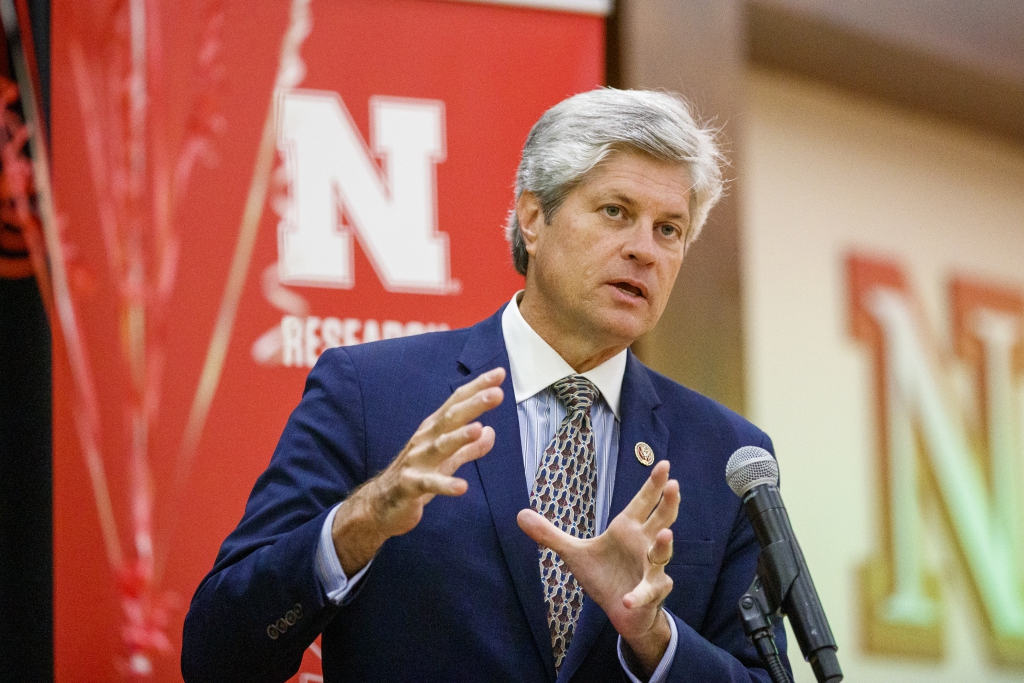
Fortenberry recognizes faculty accomplishments
Congressman Jeff Fortenberry was a guest speaker at the annual Faculty Recognition Breakfast held Nov. 5 during Nebraska Research Days. He commended Nebraska’s broad research efforts that impact security, infrastructure, health and agriculture for Nebraska and beyond. Chancellor Ronnie Green and Bob Wilhelm, vice chancellor for research and economic development, also gave remarks.

Congressional delegation visits NU campuses
The University of Nebraska hosted staff members from Nebraska’s five congressional offices for campus visits Sept. 30-Oct. 4. Staffers began the week at the Department of Agronomy and Horticulture’s facilities and research farms fields near Havelock, where they learned about the university’s work to improve corn genetics for stress tolerance and resilience.
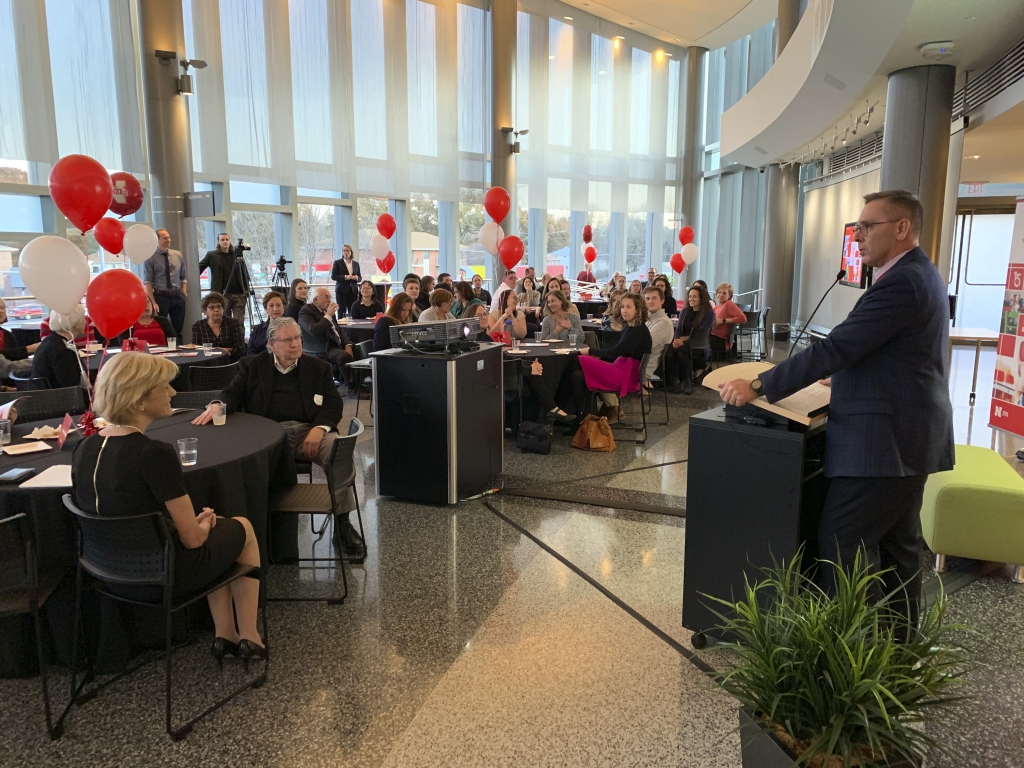
CYFS celebrates 15th anniversary
The Nebraska Center for Research on Children, Youth, Families and Schools celebrated its 15th anniversary Nov. 18. Since its inception in 2004, CYFS has fostered relationships and partnerships in research, practice and policy to find solutions to complex challenges facing children, youth, families, schools and communities — both rural and urban — and especially among those who are most vulnerable. The center’s work has reached 1,700 K-12 schools across Nebraska, the nation and the world. It also has been a highly productive center, earning 240 research grants totaling $88 million over the past 15 years.
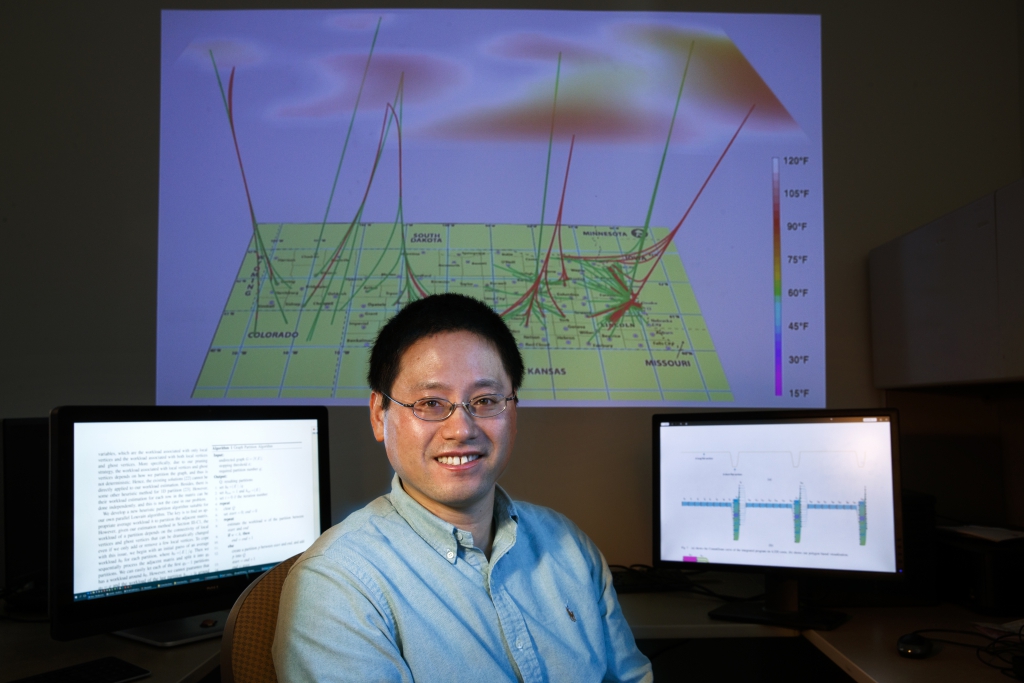

Yu, Binek tapped for interim leadership roles
Hongfeng Yu, associate professor of computer science and engineering, was named interim director of the Holland Computing Center, effective Aug. 30. Yu’s responsibilities include facilitating the center’s research, operations and resource development activities. He assumes the role held by David Swanson.
Christian Binek, professor of physics and astronomy, was named interim director of the Nebraska Center for Materials and Nanoscience, effective Oct. 4. He succeeds David Sellmyer, George Holmes University Distinguished Professor of Physics. Binek is also head of the magnetoelectric materials and functional interfaces research group in Nebraska’s Materials Research Science and Engineering Center.





